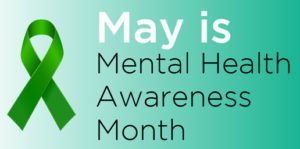Obsessive-Compulsive Disorder (OCD) is a mental health condition that affects millions of people worldwide. It is characterized by intrusive, unwanted thoughts, images, or urges (obsessions) and repetitive behaviors or mental acts (compulsions) that individuals feel compelled to perform in order to alleviate their anxiety or distress caused by these obsessions.
Living with OCD can be challenging, and it can feel isolating at times. However, there is hope. Many people with OCD are able to manage their symptoms with the help of therapy, medication, and support from loved ones. Here are some tips and resources for managing OCD:
- Seek professional help: A mental health professional can help you understand your symptoms and develop a treatment plan tailored to your needs. This may include cognitive-behavioral therapy (CBT), exposure and response prevention (ERP), and/or medication.
- Practice self-care: Taking care of your physical and emotional well-being is essential when living with OCD. This may include getting enough sleep, eating a healthy diet, exercising regularly, and engaging in activities that bring you joy.
- Build a support system: Talking to friends and family members about your struggles with OCD can be helpful. You may also consider joining a support group or seeking out online communities for people with OCD.
- Educate yourself: Learning more about OCD can help you better understand your symptoms and feel less alone. There are many resources available online, including blogs, podcasts, and books.
- Be kind to yourself: Living with OCD can be challenging, but it’s important to remember that you are not alone. Be patient and compassionate with yourself as you work towards managing your symptoms.
Some helpful resources for learning more about OCD and finding support include:
- International OCD Foundation (https://iocdf.org/)
- National Institute of Mental Health (https://www.nimh.nih.gov/health/topics/obsessive-compulsive-disorder-ocd/index.shtml)
- OCD and Anxiety Support Hong Kong (https://www.oasishk.org/)
- OCD UK (https://www.ocduk.org/)
- The OCD Stories (https://theocdstories.com/)
Remember, you are not alone in your struggles with OCD. With the right treatment and support, it is possible to manage your symptoms and live a fulfilling life. Our team at Caring 4 Mental Illness can also help you find local assistance.


